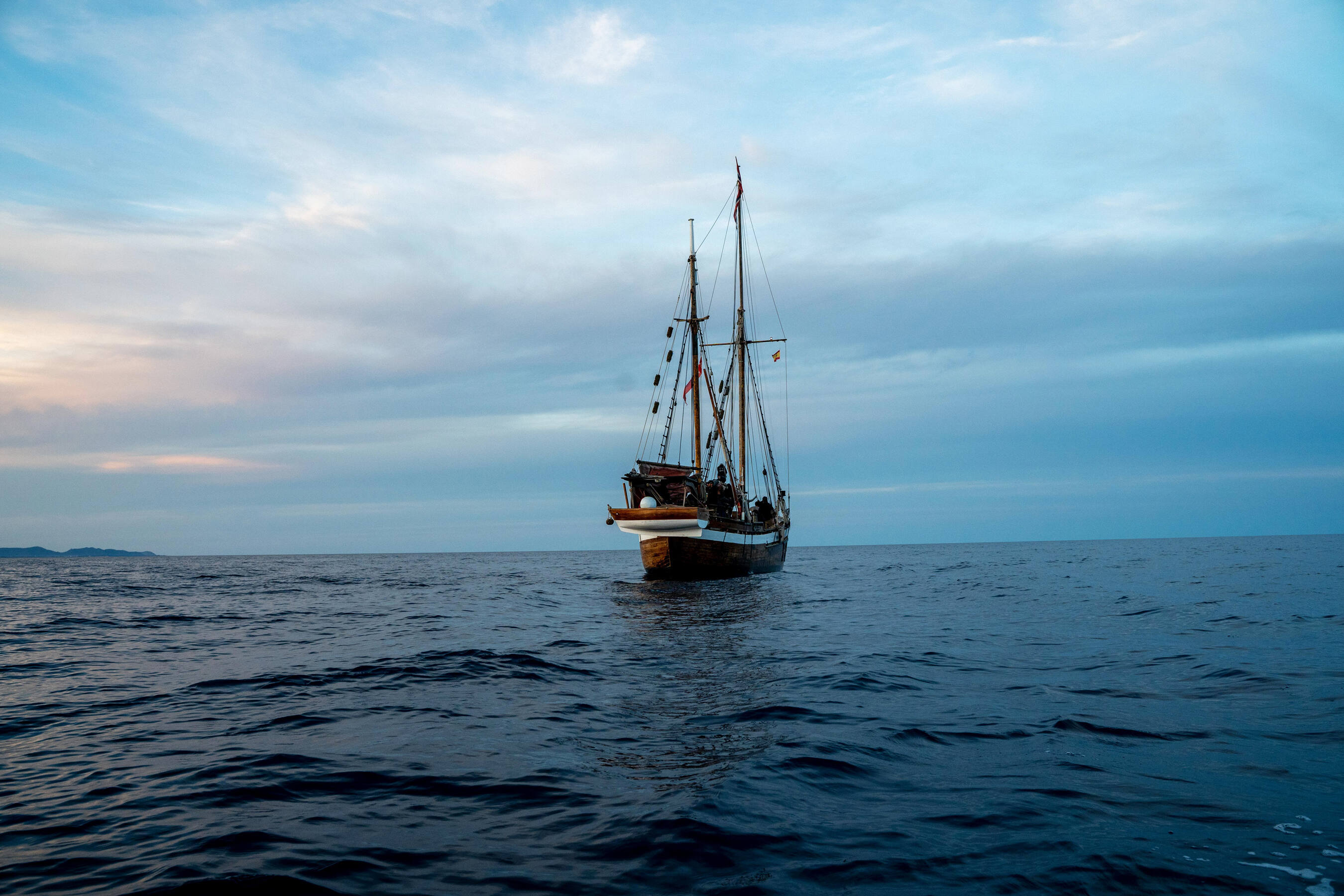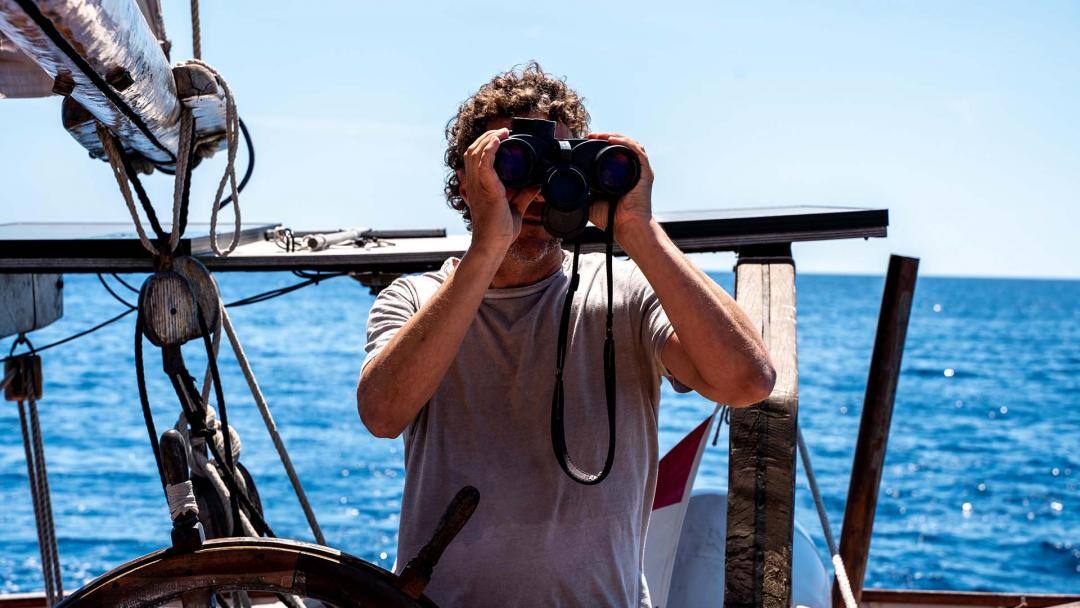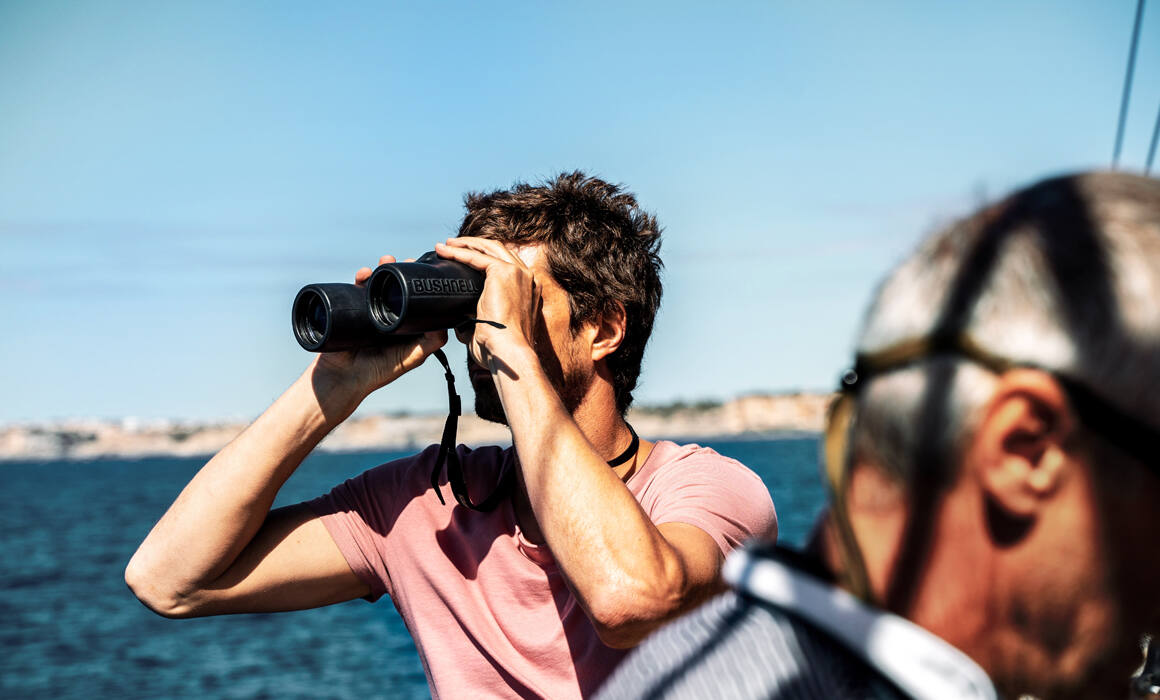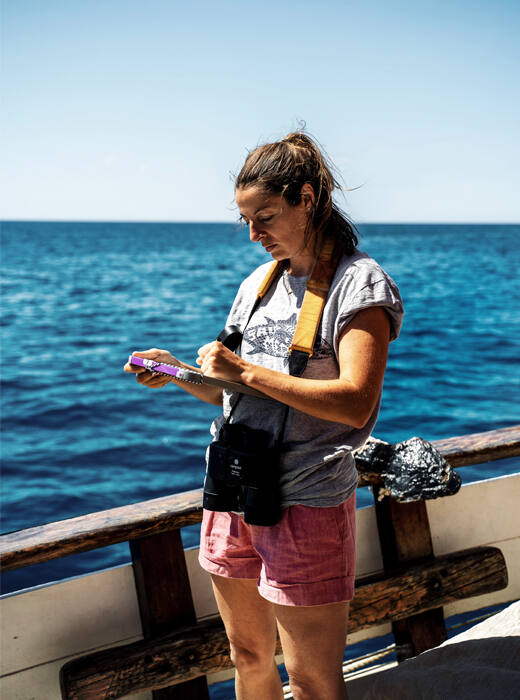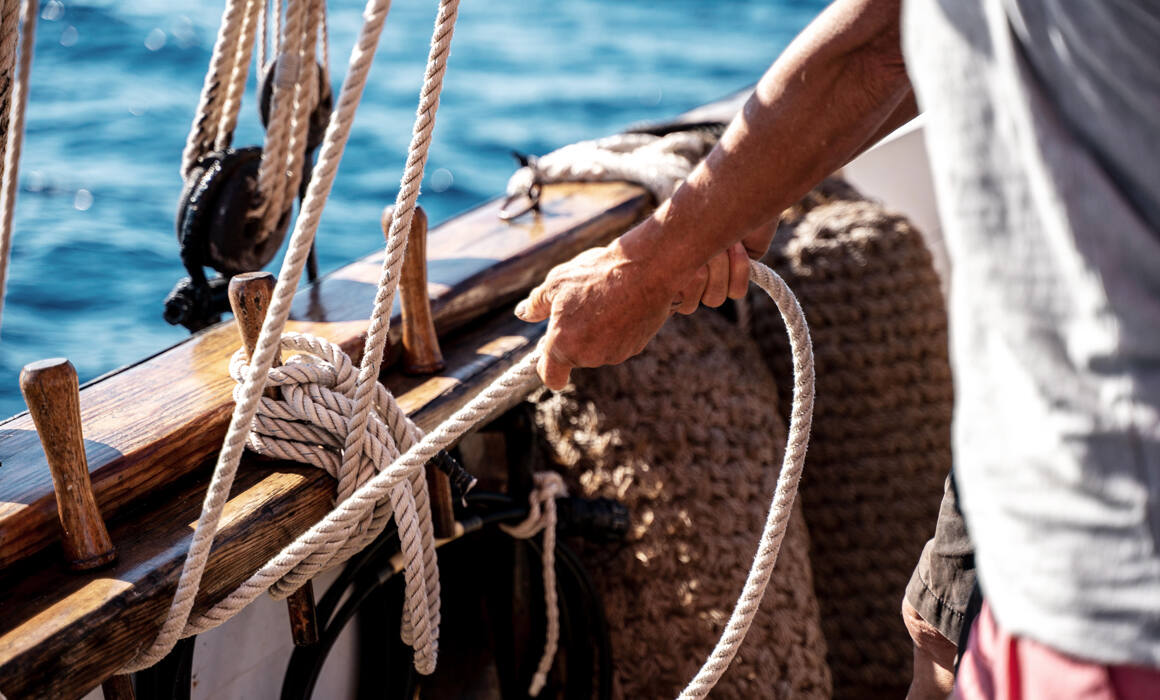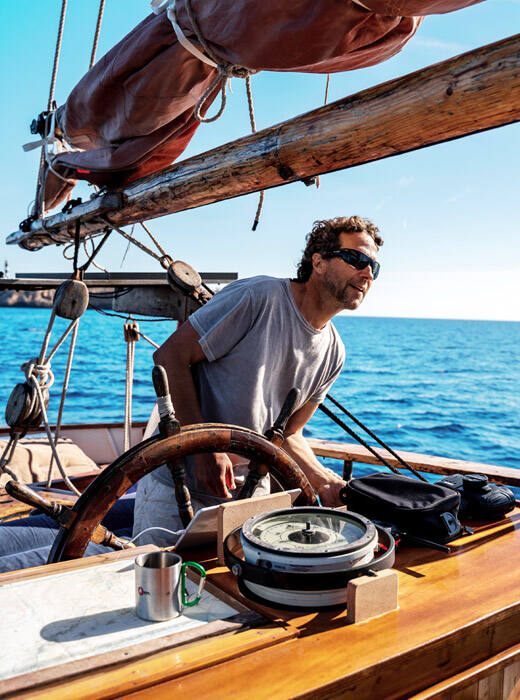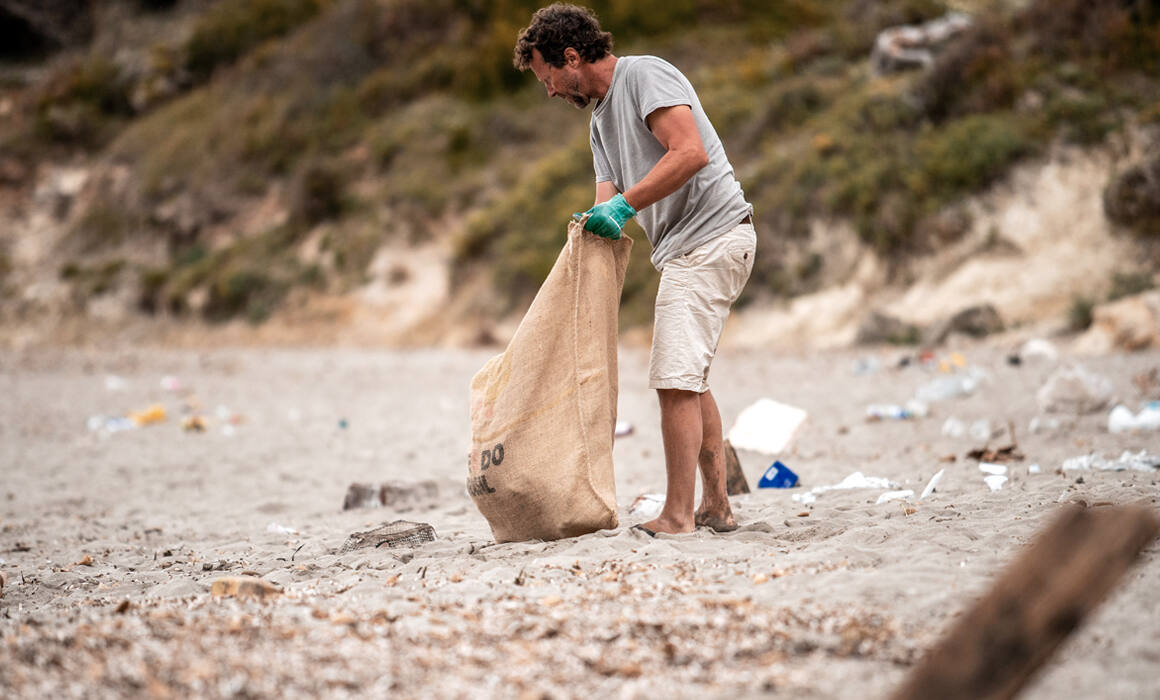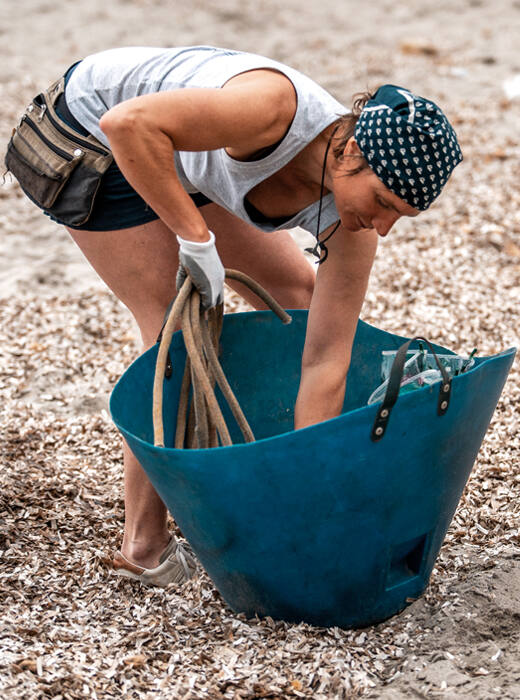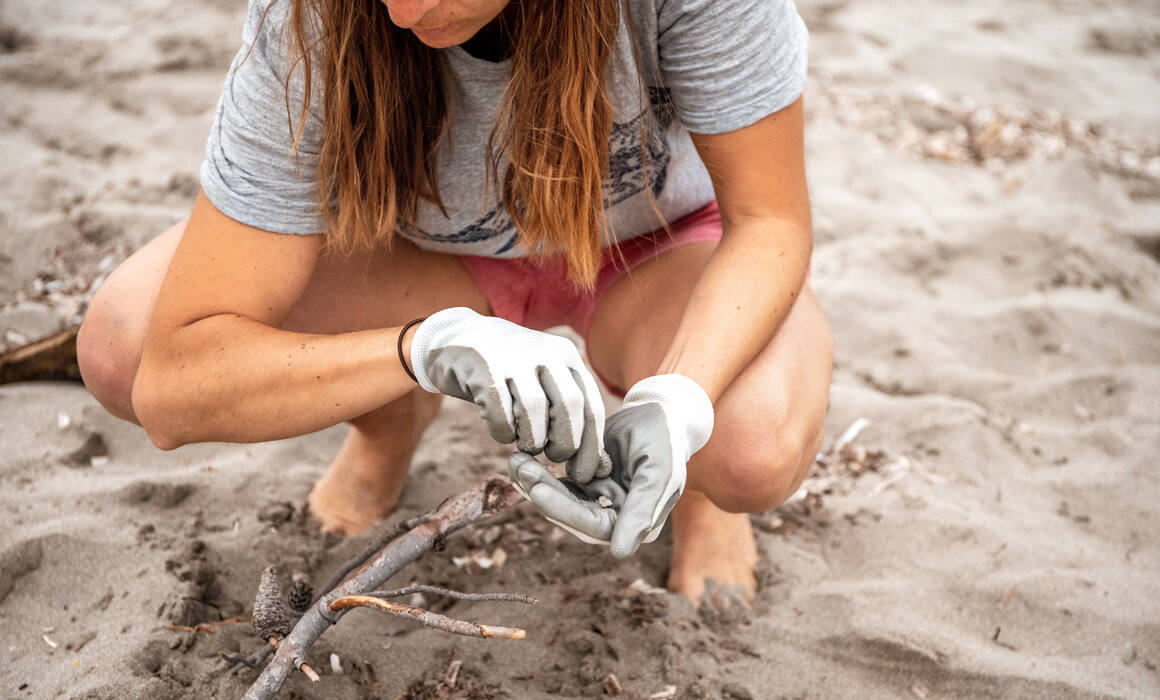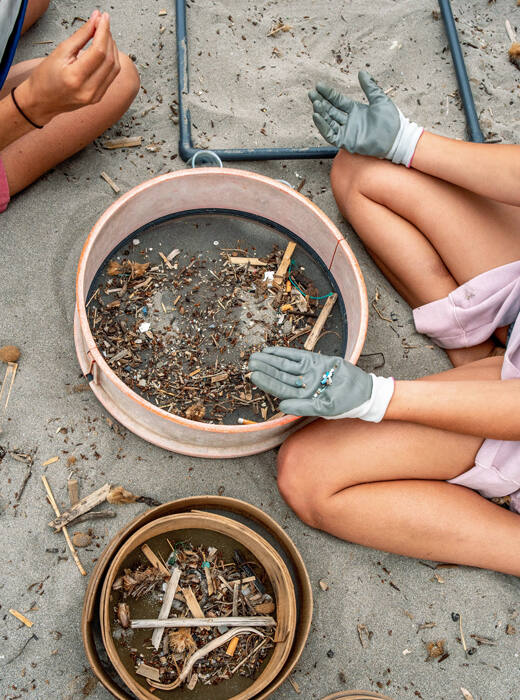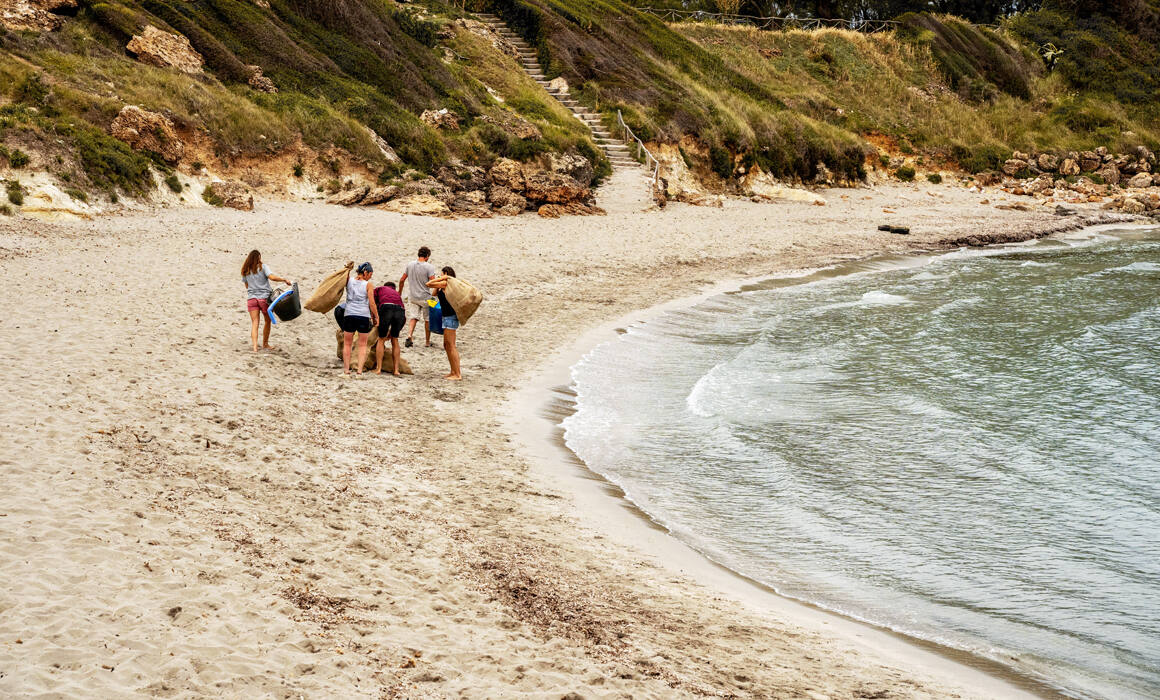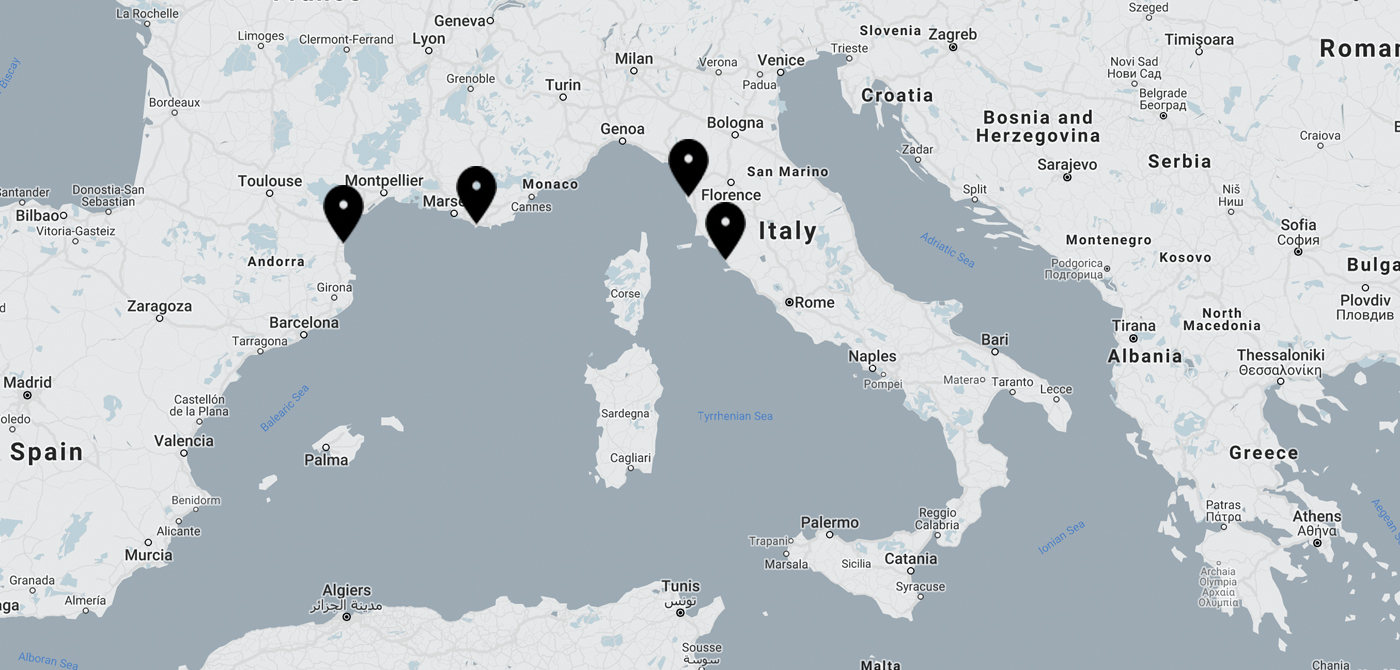The blue of the Mediterranean instantly won Ricardo Sagarminaga’s heart. Born into a sailing family, this Basque-Dutch environmentalist founded one of our sea’s most important research and marine education centres: Alnitak, which is currently connected to Fundación Save the Med. Based on the island of Mallorca, Sagarminaga has been working with an environmental innovation strategy based on citizen participation for more than 30 years. Toftevaag is his flagship, an old Norwegian fishing boat from 1910 that has been converted into a research ship. A kind of open-air office that has become a meeting point for scientists, teachers, filmmakers and volunteers. It symbolises the identity and vision of the project, and has allowed Sagarminaga to bring together his two passions: classic sailing boats and the conservation of marine biodiversity.
Choose your country or region
- Europe
- Spain
- Catalonia
- Portugal
- United Kingdom
- International Version
Conservation in action
MALLORCA, BALEARIC ISLANDS
Ricardo Sagarminaga, lead researcher and member of Save The Med
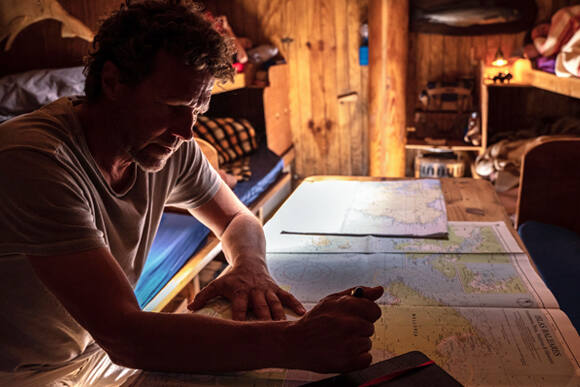
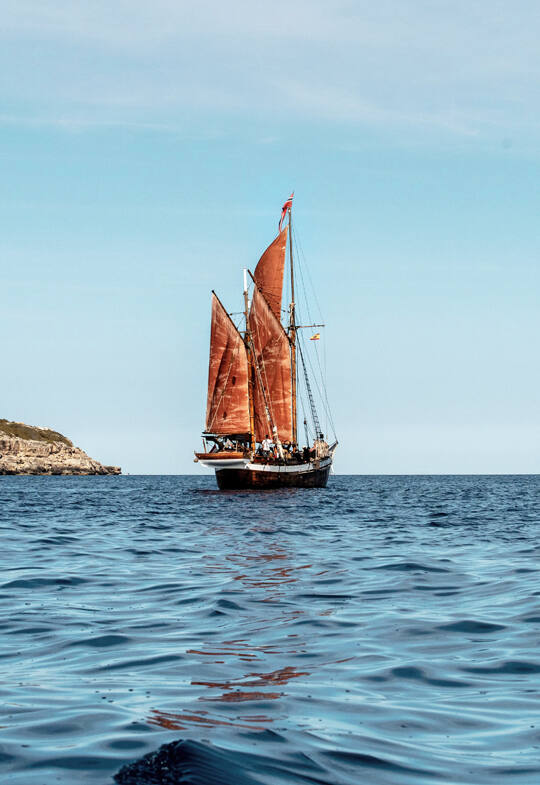
SCIENCE AND DIALOGUE
Save The Med’s research programme focuses on the study of factors that endanger the survival of umbrella species common to all oceans: sea turtles, sharks, whales, dolphins and tuna. A model based on scientific work, gathering high-quality data using new technologies, and dialogue with all parties involved in the ecosystem. “It’s astonishing how far you can go with a scientific basis and dialogue as your standard bearers when trying to find solutions that will benefit the entire ecosystem,” Sagarminaga points out. The ultimate goal is to find cross-border solutions that can be applied to resolve similar problems in other seas and oceans of the world.
A MINIATURE OCEAN
The Mediterranean is a sea which, due to its size and biological richness, allows results that are meaningful from a scientific perspective to be extracted in a very short time. Something that takes ten days’ work in the Mediterranean, would take a hundred times as long in the ocean. For this reason, despite the specific characteristics of the issues in other seas and oceans, our sea serves as an example for finding common solutions. Sagarminaga understands it this way: “It’s like having an ocean under the lens of your microscope, and that’s why we use it as a laboratory to develop measures that can then be adapted to other parts of the planet.”
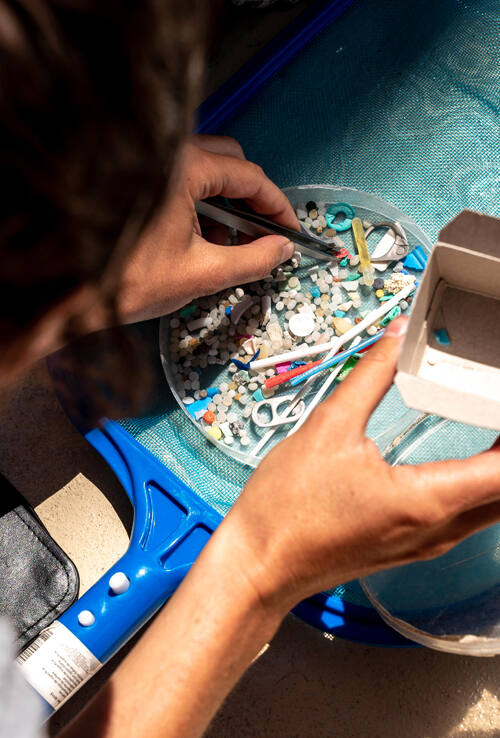
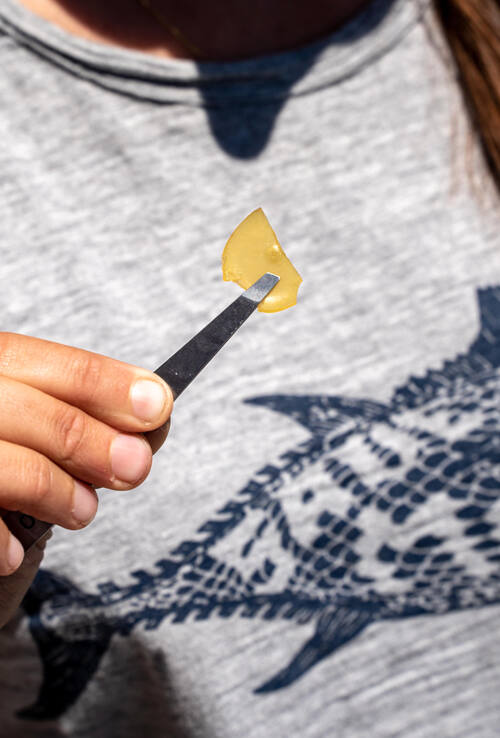
A CRITICAL SITUATION
Large pieces of plastic don’t take 500 years to disappear, instead they become microplastics and enter the food chain of the sea’s ecosystem. The vast majority of the species in the Mediterranean are being affected by this and other issues, like ghost nets, accidental collisions and climate change. This situation is very worrying and requires immediate action; as Sagarminaga puts it, “To counteract these threats we don’t need more data, we need to act right now, because we can’t carry on like this.”
TEAMWORK
Increasing the number of protected marine areas, avoiding collisions between large ships and whales, and significantly reducing the accidental catching of sea turtles by different fishing methods are some of the milestones that have been reached thanks to the work of Save the Med. These results would not have been possible without the fundamental cornerstone of the project: citizen collaboration. Because the best way to protect the Mediterranean is to do it together. Ricardo Sagarminaga is very aware of this, “Our volunteers are our field assistants, economic sponsors and they generate the energy we need to maintain the team’s motivation and to keep working.”
